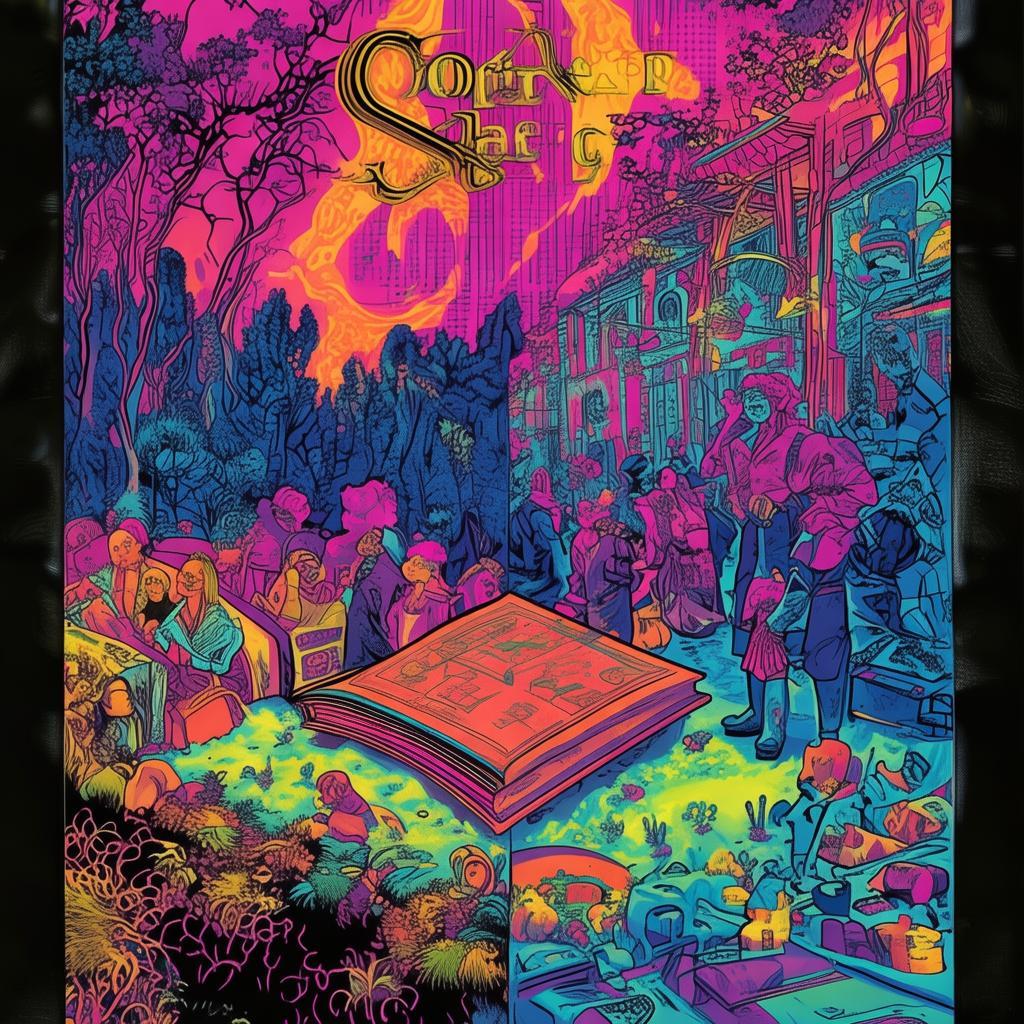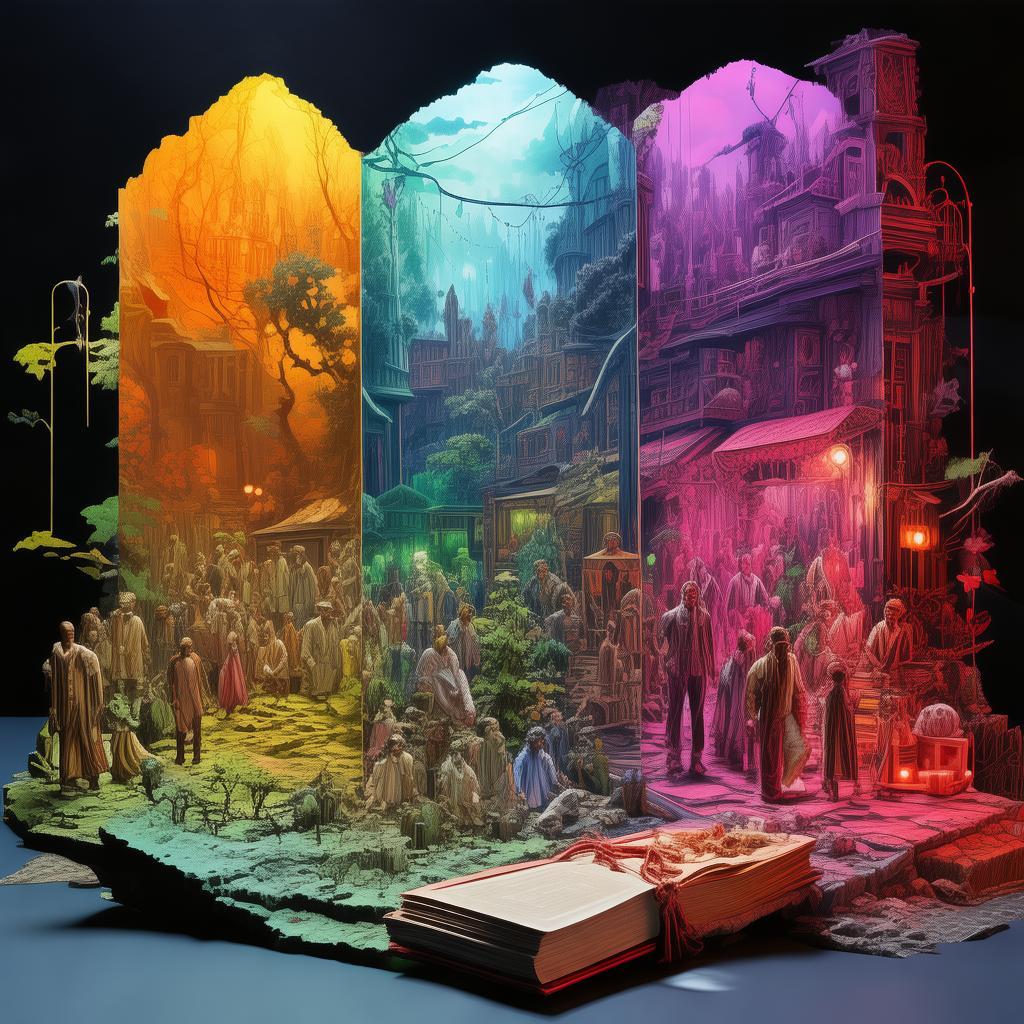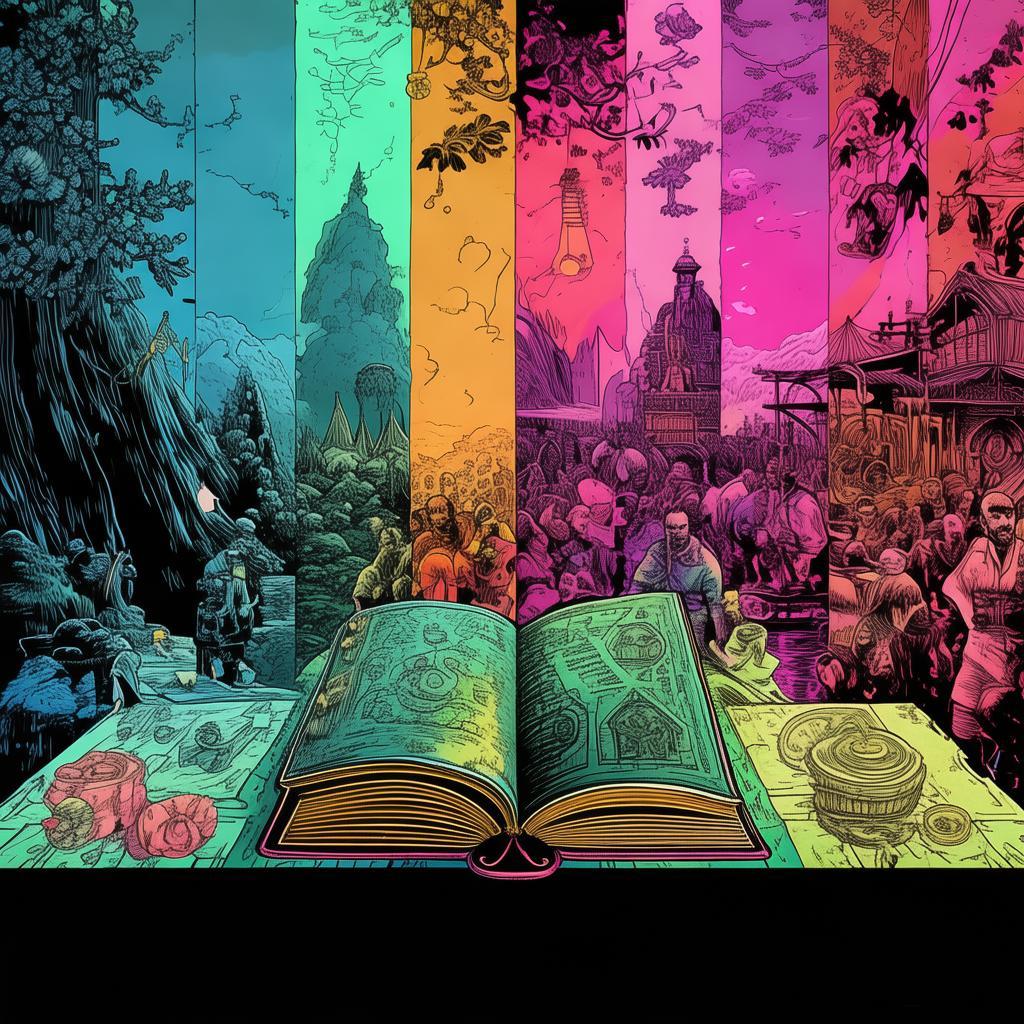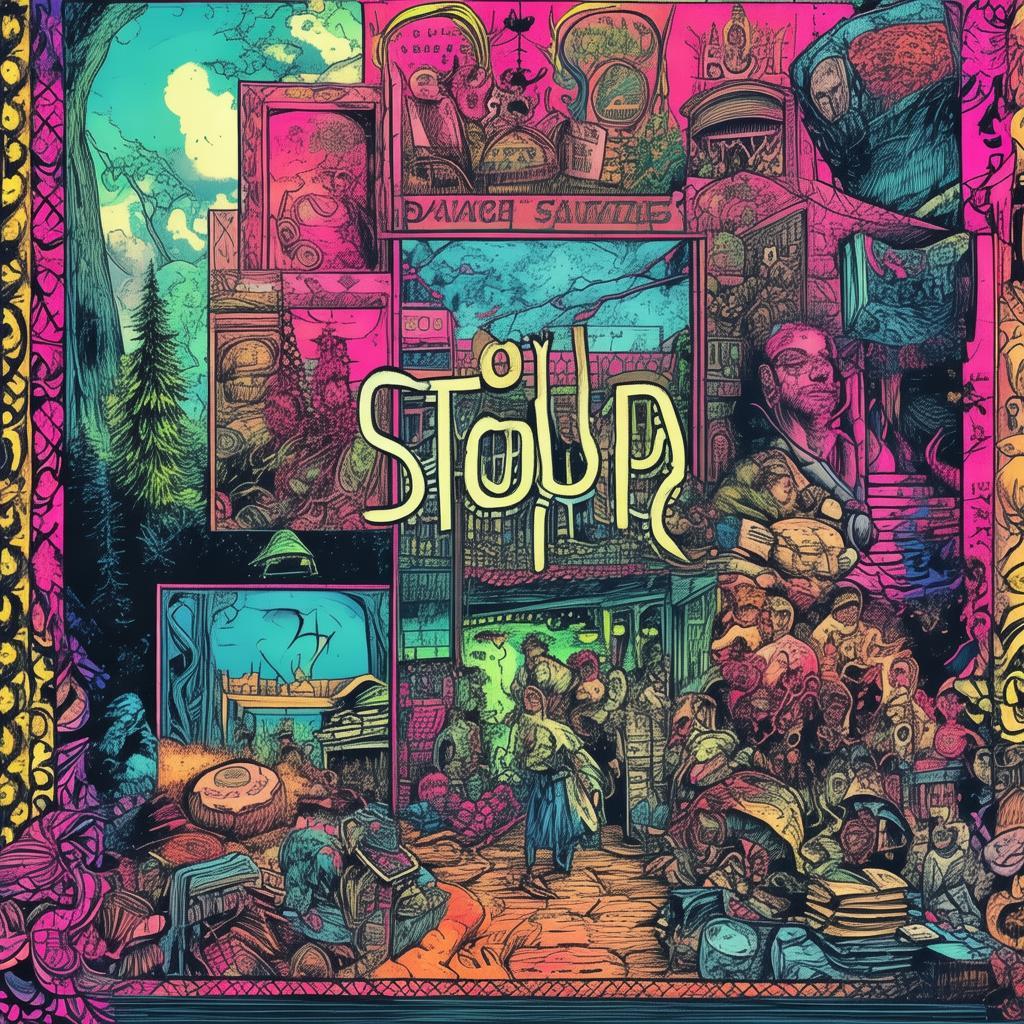The Echo of the Past: A Labyrinthine Legacy Unraveled
The sun dipped low over the sprawling metropolis, casting long shadows over the bustling streets. In the heart of the city, a young architect named Wei stood before a dilapidated building, its facade adorned with layers of history and neglect. His hands, rough from the day's work, traced the intricate carvings that lined the facade—a labyrinthine pattern that seemed to tell a story of its own.
Wei had always been fascinated by the city's hidden stories, the forgotten tales that lay beneath the surface of modern life. One evening, as he wandered the streets, he noticed a peculiar symbol etched into the sidewalk—a key, with a peculiar twist that seemed to beckon him. His curiosity piqued, he followed the key's trail to a narrow alley, where he found an ancient, stone door, half-buried in the ground.
With a mixture of trepidation and excitement, Wei pushed the door open, revealing a steep, winding staircase that descended into darkness. He descended cautiously, the air growing colder with each step. The walls were adorned with faded frescoes, depicting scenes from the city's past—a time of grandeur and strife. As he reached the bottom, Wei found himself in a vast, dimly lit chamber, the walls lined with ancient books and artifacts.

In the center of the room stood a pedestal, upon which rested a small, ornate box. Wei approached it, his heart pounding with anticipation. He opened the box to reveal a scroll, written in an ancient script. As he unrolled it, he discovered a map of the city, with a series of symbols that seemed to point to specific locations. The scroll read:
"The labyrinthine legacy of our nation lies hidden within the very fabric of our city. To uncover its secrets, one must embark on a quest that spans the ages, a journey that will test the limits of courage and ingenuity."
Intrigued and determined, Wei decided to follow the map's clues. His first stop was the old library, where he found a book detailing the city's founding and its labyrinthine origins. He learned that the labyrinth was a symbol of the nation's resilience and unity, a place where the spirits of the past could communicate with the living.
Wei's quest led him to the city's oldest park, where he discovered a hidden entrance to the labyrinth beneath the ground. He descended into the labyrinth, a place of ancient secrets and forgotten memories. As he navigated the twisting corridors, he encountered spirits of the past, each with a story to tell and a lesson to impart.
One spirit, an elderly woman with eyes that seemed to pierce through time, revealed to Wei the true purpose of the labyrinth. "The labyrinth is a mirror of our nation's soul," she said. "It reflects our triumphs and our failings, our dreams and our fears. Only by facing the labyrinth's challenges can we understand ourselves and our place in the world."
Wei's journey through the labyrinth was fraught with danger and discovery. He encountered traps set by the past, puzzles that required knowledge of the city's history, and spirits that tested his resolve. Each challenge brought him closer to understanding the labyrinth's legacy and his own role in it.
As Wei reached the heart of the labyrinth, he found himself facing a final test—a mirror that reflected his innermost fears and desires. He took a deep breath and stepped forward, confronting the mirror's gaze. In that moment, he realized that the labyrinth was not just a physical place, but a metaphor for the nation's collective consciousness.
With newfound clarity, Wei emerged from the labyrinth, a changed man. He returned to the city, determined to use his skills as an architect to restore the labyrinth and share its story with the world. He worked tirelessly, reconstructing the labyrinth and creating a museum that would house the artifacts and stories he had discovered.
The city, once a place of forgotten secrets, began to thrive once more. People from all walks of life visited the labyrinth, seeking inspiration and understanding. Wei's work became a symbol of the nation's resilience and the power of collective memory.
In the end, Wei realized that the labyrinthine legacy was not just a story of the past, but a reminder of the nation's ongoing quest for glory and unity. His journey had transformed him, and he had become a guardian of the labyrinthine legacy, ensuring that its secrets would be preserved for generations to come.
✨ Original Statement ✨
All articles published on this website (including but not limited to text, images, videos, and other content) are original or authorized for reposting and are protected by relevant laws. Without the explicit written permission of this website, no individual or organization may copy, modify, repost, or use the content for commercial purposes.
If you need to quote or cooperate, please contact this site for authorization. We reserve the right to pursue legal responsibility for any unauthorized use.
Hereby declared.









